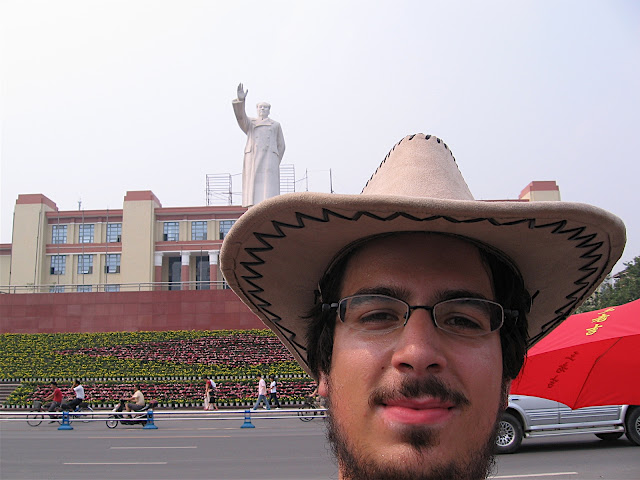skip to main |
skip to sidebar
The drive for radical change everywhere else–this is a broader, but more accurate, description of what I was trying to say when I referred to pro-invasion arguments that took for granted that “our government essentially has the right to shape and dominate the politics of other parts of the world and to use force to quash resistance to its efforts.” We seek this radical change partly because we do not really understand the world and want to make it more like ourselves, and partly because it gives us an occasion to celebrate ourselves. Both are ultimately a function of pride, but this is then formalized into an entire mythology, capped off by tales of the importance of Pax Americana. The war in Iraq has been a particularly blunt, cruel application of this pursuit of radical change, but it is the pursuit of such change that led Wilson to send our men into the slaughterhouse of WWI, inspired the creation of the Great Society on the Mekong and which has propelled the Second Inaugural’s ideas of American-led global democratic revolution. Obama referred to the “mindset that led to war” in his early primary speeches on Iraq. That mindset is that the world is ours to do with as we please, and anyone who says differently is aligned with malign forces that wish us ill. This radical change is necessarily violent and aimed at the destruction or dramatic reorganization of other polities. Boundaries will be redrawn as we wish (e.g., Kosovo), regimes will be overthrown, and foreign populations will be thrown into upheaval, and it will be an article of faith that everyone affected (except perhaps the dead) are better off. The striking thing is that this is considered to be well within the bounds of normal, respectable, sane discourse, and critiques of these views are considered to be ramblings of a wild and woolly-minded fringe. -Daniel Larison
And:
This is going to necessarily depend a lot on perspective, of course, but I think a huge amount of our foreign policy vision is predicated on assumptions that are radical; our people, meanwhile, don't understand their radicalism. Anyone who has considered our foreign policy aloud in various online fora will be aware that the idea that the United States can act with impunity in any country, at any time, for any reason, ever, is one that is held by many people. And it's not even as if this is some dearly-held belief that people defend rabidly; no, it slides by as though it needs no defense. It's just the baseline assumption for many Americans who don't traffic in foreign policy debate. -Freddie




No comments:
Post a Comment